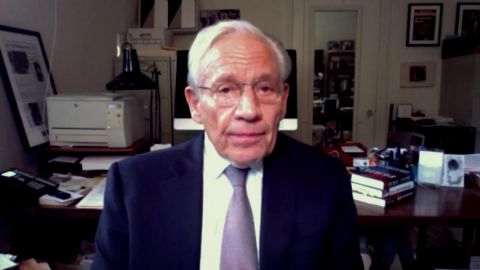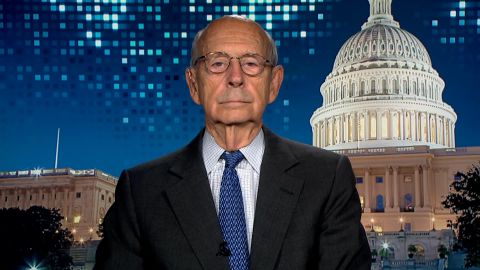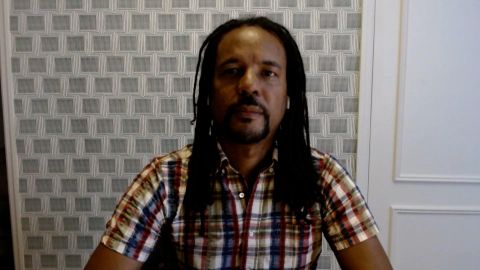Read Transcript EXPAND
CHRISTIANE AMANPOUR: We all think that the Supreme Court of the United States is just a teensy-weensy bit higher in terms of importance, because of its jurisprudence, rule of law, and the idea that it stands above politics and adjudicates fairly. And that seems to be in decline. And I know that’s also a concern of yours, and what you have focused on a lot of in your book…
STEPHEN BREYER, U.S. SUPREME COURT ASSOCIATE JUSTICE: It is.
AMANPOUR: … the perils of political interference.
BREYER: It is.
AMANPOUR: So let me just read you this. Your close friend, or she became a close friend of yours in the court, was Sandra Day O’Connor. Now, she was appointed by Ronald Reagan, conservative president, but she wrote something that goes to the heart of all of this, and I want to know your reaction to it. And this was back in 2005, when she voted with the liberal — her liberal colleagues, such as yourself, that it was unconstitutional for a politically motivated Ten Commandments by a Kentucky courthouse. She said: “We see around the world” — and now she’s warning America about what they see around the world — “the violent consequences of the assumption of religious authority by government. Americans may count themselves fortunate. Those who would renegotiate the boundaries between church and state must therefore answer a difficult question: Why would we trade a system that has served us so well for one that has served us so poorly?” So I want to ask you this in terms of what just happened to the Supreme Court. In the dead of night, the Supreme Court basically decided to punt on this Texas banning of abortion laws. She was right, Sandra Day O’Connor.
BREYER: I think she was right. I think I joined that opinion. These last three decisions, which I just send it very strongly from, do they show a big shift in the court? No, I don’t think so. There are always decisions with which I disagree, and sometimes very, very, very strongly. The one you’re talking about is not really — it’s a procedural matter. The court there did not decide anything about the constitutionality of the Texas law. It was a question of procedures, and you would have to look it up to understand just why we divided on that. I thought they were wrong. When I first came to the court, I had really never seen so many matters I was involved in where I thought how right I am and how wrong the other side is. And that’s always been true. But, with a little time, I began to have a more mature attitude. This is a big country, very big, 331 million people. And we have every race, every religion, every point of view imaginable. And it is a miracle, a miracle that this document, the Constitution of the United States, has held these millions of people together.
About This Episode EXPAND
Stephen Breyer; Colson Whitehead; Bob Woodward
LEARN MORE


